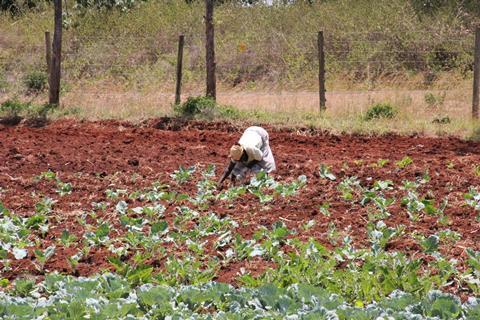As talks begin in Azerbaijan for Cop29, climate financing in the developing world is the number one priority for NGOs, while support for global offsetting schemes fades

Dame Amelia Fawcett, co-chair of the International Advisory Panel on Biodiversity Credits (IAPB), has said that global offsetting “doesn’t work” when it comes to biodiversity.
Organisers of a UK- and France-led framework released a new set of voluntary standards and ruled out the possibility of a global offsetting exchange, stating that biodiversity credits should “only be used locally to compensate for like-for-like habitat loss”, the Guardian reported.
“Global offsetting in biodiversity doesn’t work and we do not support it,” said Fawcett. “Local compensation – or local offsetting – for residual harm in the same ecological ecosystem is appropriate.”
The move follows an investigation last year by the Guardian which found that forest carbon offsets approved by the globe’s leading certifier were “largely worthless”.
The 2024 UN Climate Change Conference, Cop29, commenced this week in Baku, Azerbaijan, with NGOs and aid organisations calling for ambitious climate financing in developing countries.
Geenpeace Africa said that communities across the continent, who have contributed least to the crisis, were demanding the immediate implementation of a Climate Damages Tax on polluters to fund loss and damage reparation.
The International Fund for Agricultural Development (IFAD) has called for leaders to set a “specific and ambitious goal on finance for adaptation, one that integrates the needs of small-scale farmers who produce a significant part of the food in developing countries, and for the world at large”.
IFAD estimated the finance gap for small-scale farmers’ adaptation to climate change at approximately US$75bn annually in developing countries.
“Establishing an ambitious New Collective Quantified Goal (NCQG) is crucial for scaling up climate finance to developing countries, particularly in Africa to tackle the scale of the prevailing crisis,” said Murtala Touray, programme director at Greenpeace Africa. “As world leaders discuss, they should bear in mind the devastating droughts in the Horn of Africa and catastrophic flooding in west and southern Africa that continue to threaten lives, livelihoods, and food security across the continent.“
“As climate change profoundly disrupts food systems, the only way to safeguard global food security is to prioritise helping small-scale farmers to adapt to the new reality,” said Alvaro Lario, president of IFAD. “The first step is for leaders at Cop29 to set an ambitious goal for adaptation finance that allows food production to continue even as the planet warms.”



